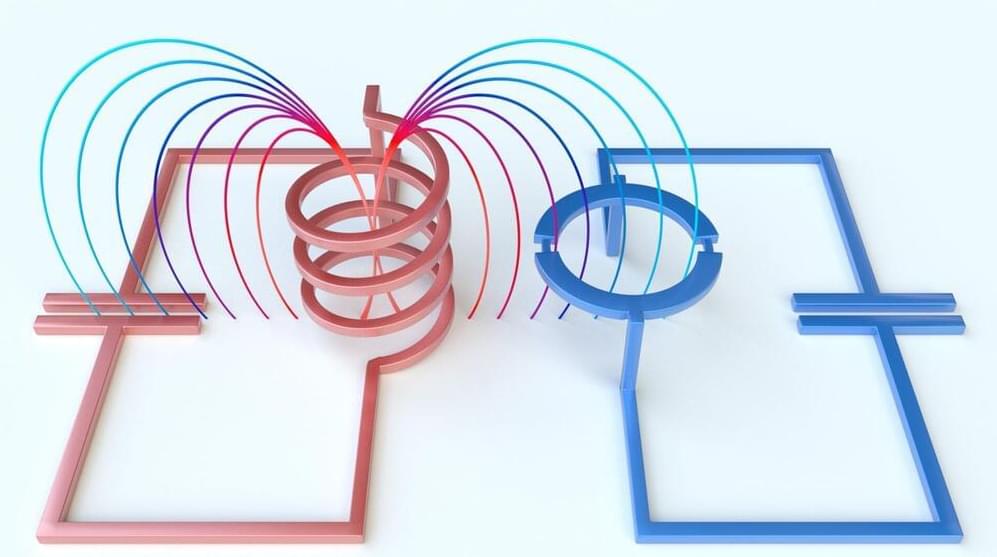Researchers at Delft University of Technology have found a new way to cool radio waves all the way down to their quantum ground state. To do so, they used circuits that employ an analog of the so-called laser cooling technique that is frequently used to cool atomic samples. The device used a recently developed technique the researchers call photon pressure coupling, which is predicted to be of use in detecting ultra-weak magnetic resonance (MRI) signals or for quantum-sensing applications that can help the search for dark matter. The results have been published in Science Advances.
The radio waves we usually encounter in our daily lives, such as those that we listen to in our car or those that send signals to our baby monitors in our house, are hot: they contain noise that comes from the random motion of the atoms in the things they are emitted from and even in the antenna you are using to listen to them. This is one of the reasons why you hear static when you tune the radio in your car to a frequency that has no radio station.
